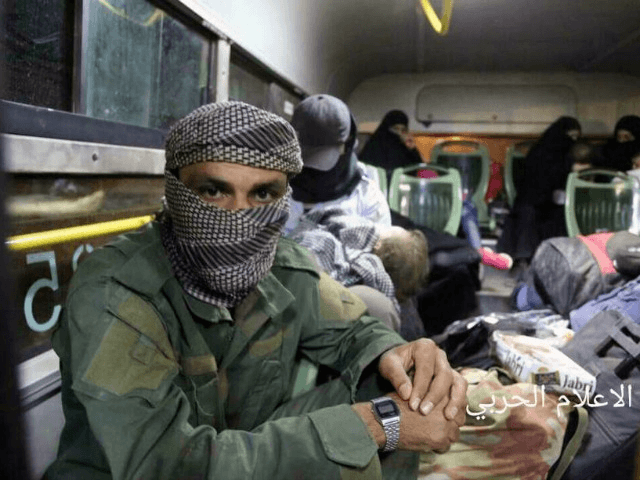Syrian jihadists affiliated with an al-Qaeda offshoot have captured the rebel-held northwestern Idlib province, placing the future of northern Syria “in big danger,” warns the U.S. State Department.
“The north of Syria witnessed one of its biggest tragedies,” wrote Michael Ratney, the top State official in charge of Syria policy, in an online letter posted late Wednesday, reports Reuters.
“In the event of the hegemony of Nusra Front on Idlib, it would be difficult for the United States to convince the international parties not to take the necessary military measures,” added the top State Department diplomat.
Although the Nusra Front claimed to have broken its ties to al-Qaeda after changing its name to Jabhat Fateh al-Sham (JFS) last year, various analysts have dismissed the allegation.
An offensive by Hayat Tahrir al Sham, a jihadist coalition spearheaded by the al-Qaeda affiliate has cemented the terrorists’ grip on the province, noted Ratney.
“Everyone should know that Jolani and his gang are the ones who bear responsibility for the grave consequences that will befall Idlib,” he said, referring to former Nusra chief Abu Mohammad al-Jolani who effectively leads Hayat Tahrir al Sham.
Ratney has been in Jordan participating in closed-door negotiations with Moscow over the ceasefire in southwest Syria struck by U.S. President Donald Trump and Russian President Vladimir Putin in July.
The truce is the first such U.S.-Russian agreement under the Trump administration aimed at ending Syria’s civil war.
U.S.-Russian relations have worsened since. According to Reuters, the al-Qaeda-linked jihadists have joined forces with Western-backed Free Syria Army (FSA) rebels who still control several towns in Idlib province.
“The south of the region is still in the hands of rival groups, including Ahrar al Sham but the jihadists have been trying to extend their control,” adds the news outlet.
FSA has received assistance from Turkey and the United States.
Ratney urged rebel groups to keep away from the jihadists before it was “too late,” noting that the U.S. would consider any group in Idlib province that was a front for the terrorists a part of al-Qaeda’s network.
Some experts believe al-Qaeda is stronger in Syria than in any other country, courtesy of the U.S.-led coalition’s single-minded focus to defeat the group’s enemy, the Islamic State (ISIS/ISIL).
Last June, Brett McGurk, President Donald Trump’s special envoy for the U.S.-led alliance against ISIS, told lawmakers at that the Nusra Front was flourishing and had become the “largest” al-Qaeda affiliate “in history.”
Al-Qaeda has capitalized on being left alone for the most part to grow stronger and remain a prominent threat to the United States.
“Al Qaeda has set conditions for the future establishment of an Islamic emirate—not necessarily under al Qaeda’s name—that will secure al Qaeda’s objective to build an Islamic polity in Syria,” Katherine Zimmerman from the American Enterprise Institute (AEI) told U.S. lawmakers, adding, “The Syrian al Qaeda network is one of the best-resourced nodes in al Qaeda because of Syria’s primacy in the global theaters for jihad. Syria remains a top destination for al Qaeda’s foreign-fighter flow, creating a large foreign recruitment base.”
Late last month, the U.K.-based Syrian Observatory for Human Rights, which uses a network of ground troops to monitor the conflict in Syria, reported that the Nusra Front had taken over the provincial capital of Idlib after the rebel group that controlled the province pulled out.
“Mainly Islamist rebels swept through Idlib province in 2015, inflicting a string of defeats on the Syrian army until Russia stepped in to reverse the tide of the civil war in favor of President Bashar al Assad,” notes Reuters.
“Idlib province, the only Syrian province that [was] entirely under rebel control, has been a major target of Russian and Syrian aerial strikes that caused hundreds of civilians casualties,” it adds.
The U.S. State Department official noted that it would be difficult to convince Russia not to renew the airstrikes it recently stopped.
“Many locals fear the jihadists’ hold on Idlib will again make the province a target of relentless attacks by Russian and Syrian forces and turn it into another devastated Aleppo or Mosul,” points out Reuters.

COMMENTS
Please let us know if you're having issues with commenting.